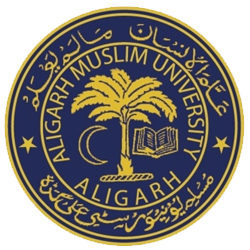

Aligarh Muslim University
Aligarh, Uttar Pradesh
Aligarh Muslim University (AMU) was established in 1920, evolving from the Mohammedan Anglo-Oriental (MAO) College founded by Sir Syed Ahmed Khan in 1875. Sir Syed was a reformer and visionary who aimed to blend modern Western education with Islamic values. MAO College laid the foundation for modern education among Indian Muslims and later transformed into AMU. The university played a vital role in shaping modern India, especially during the British colonial period and the early post-independence years.
More details of college check on Official website: https://www.amu.ac.in/
AMU was among the first institutions in India to offer higher education in modern sciences, law, arts, and theology, and remains a symbol of cultural, academic, and historical significance.
Facilities
AMU’s main campus is in Aligarh, Uttar Pradesh, spread across more than 1,100 acres, with additional off-campus centers in Murshidabad (West Bengal), Kishanganj (Bihar), and Malappuram (Kerala). Key facilities include:
Maulana Azad Library – One of the largest university libraries in Asia, with millions of books, journals, and digital resources.
Academic Departments and Research Institutes – Covering fields like engineering, medicine, law, humanities, social sciences, theology, and natural sciences.
Residential Halls and Hostels – A strong residential system with separate halls for men and women, promoting a community-based learning environment.
Jawaharlal Nehru Medical College (JNMC) – A major hospital and teaching institution providing healthcare and clinical training.
Sports Complexes – Facilities for cricket, football, tennis, swimming, indoor games, and gymnasiums.
Cultural and Literary Clubs – Active student societies for debates, drama, music, and social outreach.
Reputation
AMU is one of India’s most respected and historic central universities, known for its rich legacy, academic excellence, and inclusive ethos. It has contributed significantly to education among Indian Muslims and continues to attract students from across India and abroad.
The university is especially renowned for its programs in law, literature, history, medicine, and social sciences. It has produced countless influential alumni including judges, politicians, scientists, diplomats, and scholars.
AMU maintains a strong identity rooted in tradition while striving for modern academic growth. It regularly features in national rankings and continues to be a symbol of intellectual growth and diversity in India.
